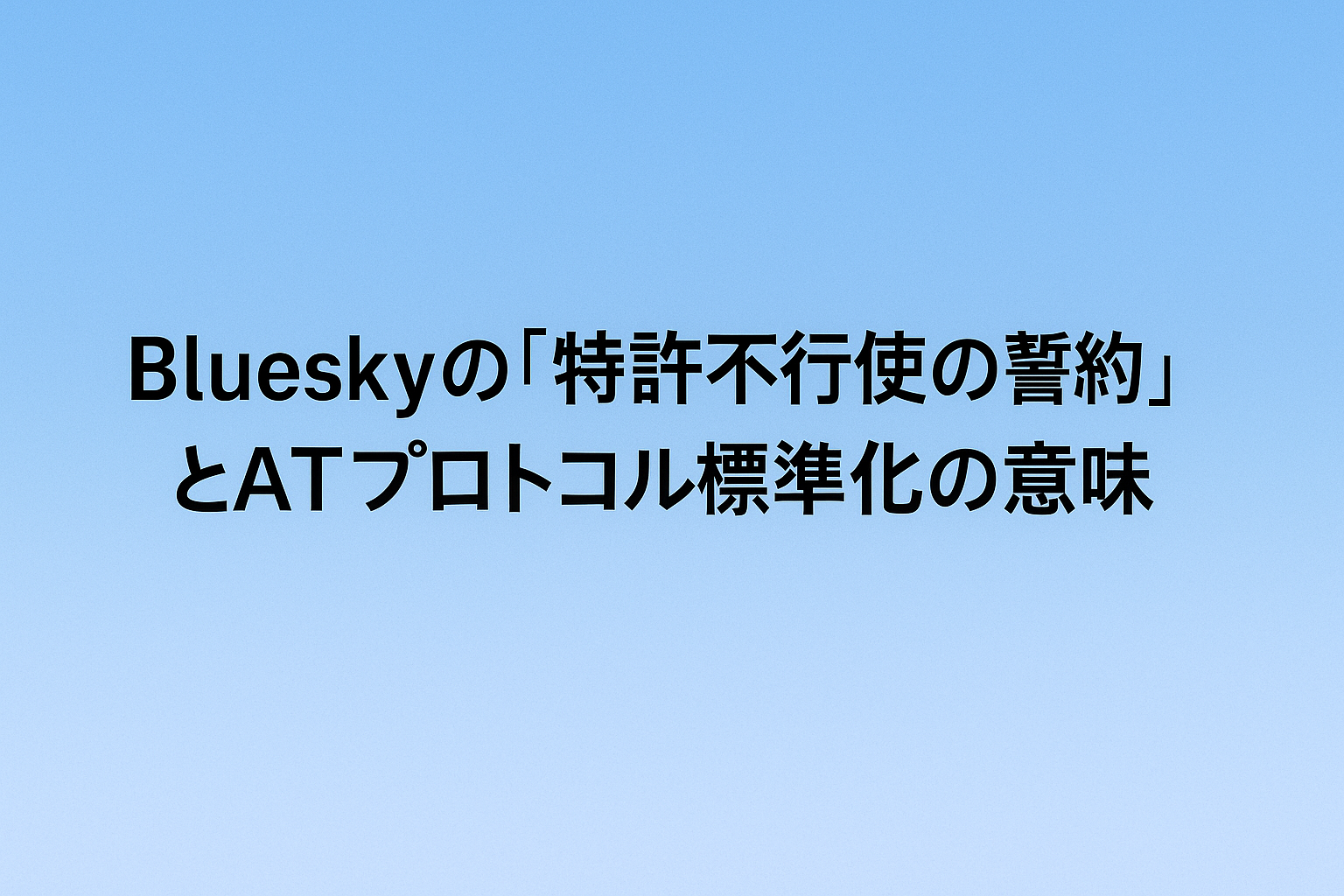The decentralized social network “Bluesky” has proposed part of its foundational AT Protocol to the IETF for Internet standardization. At the same time, it announced its “Patent Non-Aggression Pledge.” This is not merely a technical initiative but an important step directly tied to the future vision of a decentralized Internet.
What Is the Patent Non-Aggression Pledge?
Bluesky has declared that it “will not enforce any software-related patents it currently owns or may own in the future against others.” However, this is not an unconditional waiver. Defensive use is still reserved. In other words, if a third party files a patent infringement lawsuit against Bluesky, only then can Bluesky retaliate by asserting its own patents.
This stance follows the same lineage as the “conditional patent non-aggression” models sometimes seen in the open-source world, aiming to create a safe environment where developers can confidently work on protocol implementations.
Why Is the Proposal to the IETF Important?
The IETF is the central body for Internet technology standardization. Protocols we all use daily—such as TCP/IP and HTTP—were developed there. Bluesky bringing the AT Protocol to the IETF is nothing less than a strong declaration of intent: “We want the technology of decentralized social networks to become part of the Internet standard.”
The Growth and Challenges of Decentralized Social Networks
While Fediverse-based services such as Mastodon and Misskey are spreading, the proliferation of competing protocols is seen as a challenge. If the AT Protocol is standardized, it could enhance interoperability, lower the entry barrier for developers, and potentially accelerate the overall growth of decentralized social networks.
Reflection: Bluesky’s Strategy and Future
This pledge is valuable not just because it “opens up the technology” but because it packages that openness with “legal assurance.” A development environment free from patent risk is decisively important in engaging startups and independent developers.
Internet standards take time but ultimately form a strong, long-term foundation. The fact that Bluesky has chosen to invest in that path reflects an ambition to transcend being merely one SNS service and instead position itself as part of the infrastructure layer of the Internet.
Conclusion
Bluesky’s “Patent Non-Aggression Pledge” is a significant reassurance for the adoption of open protocols. Its move toward IETF standardization signals that decentralized social networks may evolve from a “passing trend” into a “mainstream of the next-generation Internet.”

